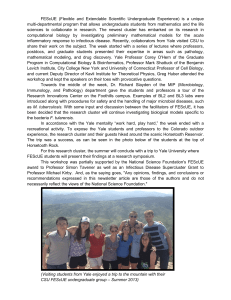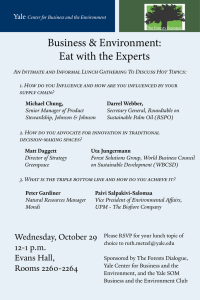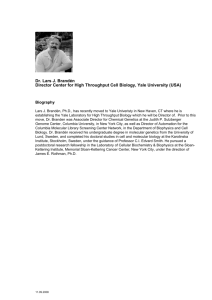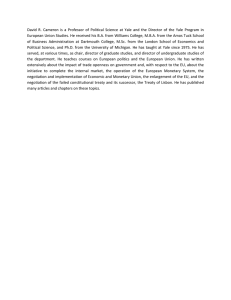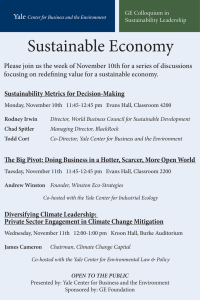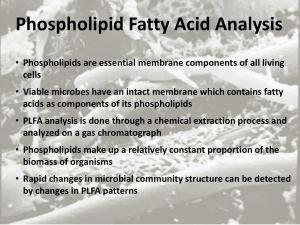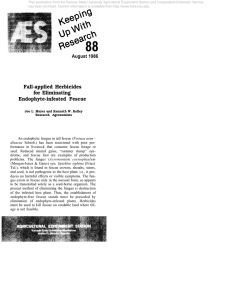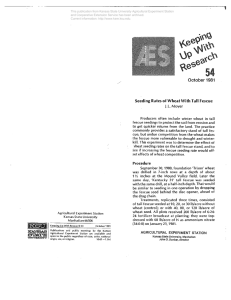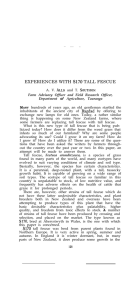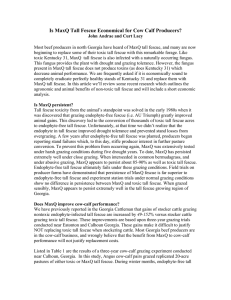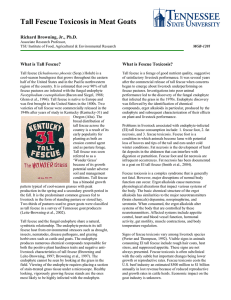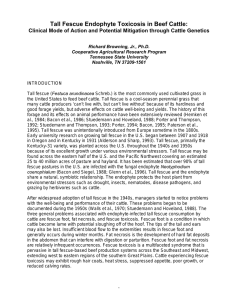FEScUE (Flexible and Extendable Scientific Undergraduate Experience) is a... multi-departmental program that allows undergraduate students from mathematics and the...
advertisement
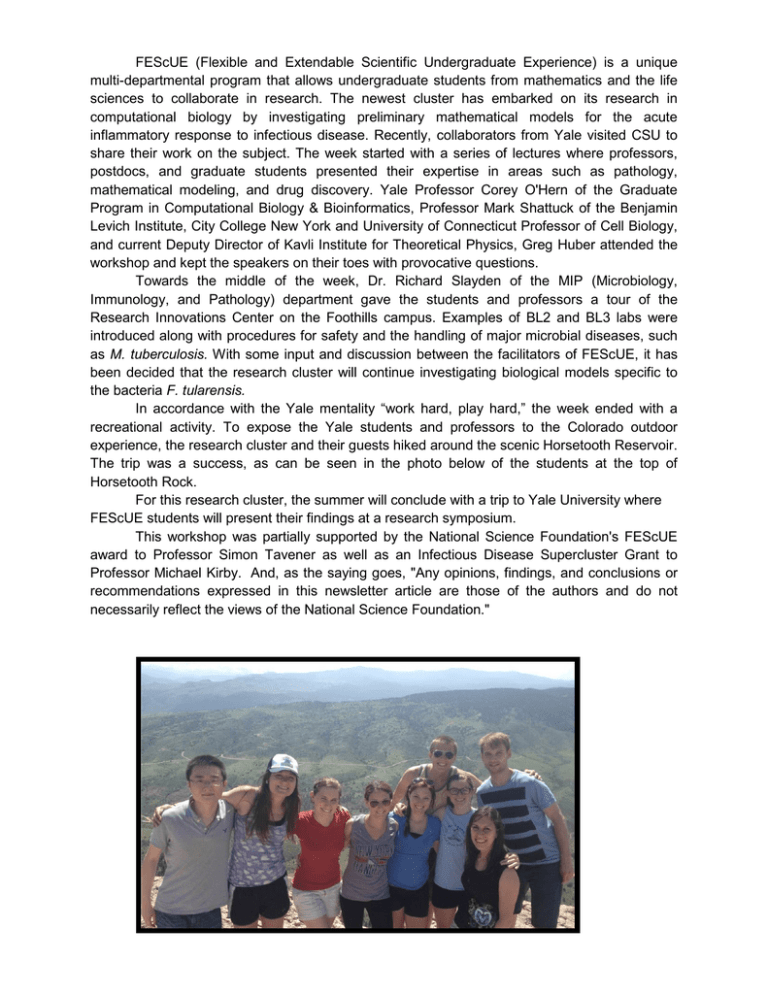
FEScUE (Flexible and Extendable Scientific Undergraduate Experience) is a unique multi-departmental program that allows undergraduate students from mathematics and the life sciences to collaborate in research. The newest cluster has embarked on its research in computational biology by investigating preliminary mathematical models for the acute inflammatory response to infectious disease. Recently, collaborators from Yale visited CSU to share their work on the subject. The week started with a series of lectures where professors, postdocs, and graduate students presented their expertise in areas such as pathology, mathematical modeling, and drug discovery. Yale Professor Corey O'Hern of the Graduate Program in Computational Biology & Bioinformatics, Professor Mark Shattuck of the Benjamin Levich Institute, City College New York and University of Connecticut Professor of Cell Biology, and current Deputy Director of Kavli Institute for Theoretical Physics, Greg Huber attended the workshop and kept the speakers on their toes with provocative questions. Towards the middle of the week, Dr. Richard Slayden of the MIP (Microbiology, Immunology, and Pathology) department gave the students and professors a tour of the Research Innovations Center on the Foothills campus. Examples of BL2 and BL3 labs were introduced along with procedures for safety and the handling of major microbial diseases, such as M. tuberculosis. With some input and discussion between the facilitators of FEScUE, it has been decided that the research cluster will continue investigating biological models specific to the bacteria F. tularensis. In accordance with the Yale mentality “work hard, play hard,” the week ended with a recreational activity. To expose the Yale students and professors to the Colorado outdoor experience, the research cluster and their guests hiked around the scenic Horsetooth Reservoir. The trip was a success, as can be seen in the photo below of the students at the top of Horsetooth Rock. For this research cluster, the summer will conclude with a trip to Yale University where FEScUE students will present their findings at a research symposium. This workshop was partially supported by the National Science Foundation's FEScUE award to Professor Simon Tavener as well as an Infectious Disease Supercluster Grant to Professor Michael Kirby. And, as the saying goes, "Any opinions, findings, and conclusions or recommendations expressed in this newsletter article are those of the authors and do not necessarily reflect the views of the National Science Foundation."
